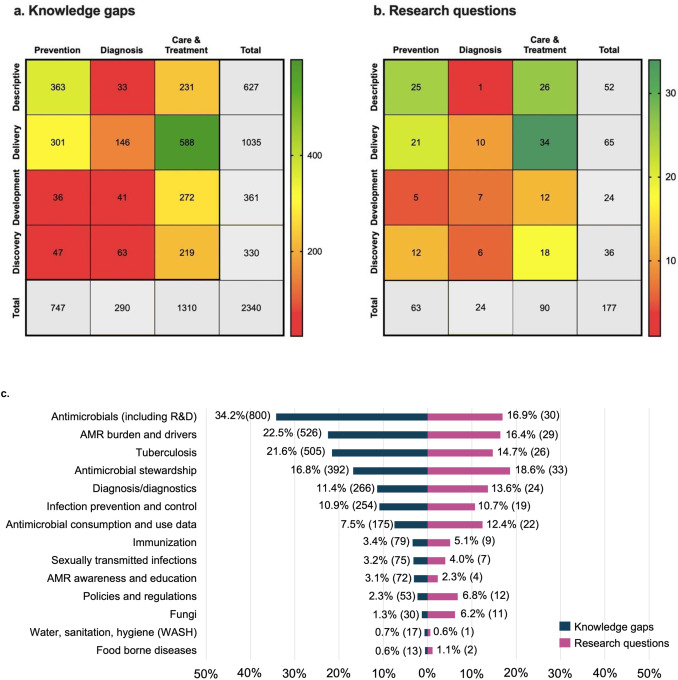💡 Researchers identify and summarize existing global knowledge gaps on antimicrobial resistance (AMR) in human health, focusing on the WHO bacterial priority pathogens. Further providing a framework towards the development of a WHO Global AMR Research Agenda for the human health sector.
📌 The global rise in AMR is considered one of the greatest public health threats, with a disproportionate burden in low- and middle-income countries (LMICs).
📌 The main drivers of emergence of AMR in micro-organisms include antimicrobial exposure; lack of access to clean water, sanitation and hygiene (WASH), poor infection prevention and control (IPC) in health-care facilities; poor access to quality-assured medicines (including new and existing essential antimicrobials), vaccines and diagnostics; lack of awareness and knowledge; and lack of enforcement of legislation.
📌 Scoping reviews are often defined as a process of summarizing a range of evidence to convey the breadth and depth of a field. This scoping review, includes studies published in English from January 2012 through December 2021, that reported on the prevention, diagnosis, treatment and care of drug-resistant infections.
🔍 The identified knowledge gaps on WHO bacterial priority pathogens and selected fungi mainly relate to the treatment and care and prevention of infections with drug-resistant pathogens, whereas significantly fewer knowledge gaps highlighted the need for further research on diagnostic tests and other tools for pathogen identification, AMR testing, and clinical decision-support tools. This finding reflects the neglected importance of quality assured laboratory capacity and related innovations, especially in LMICs, where the lack of accessible, robust diagnostic processes results in poor patient outcomes, irrational antimicrobial use, and further emergence and spread of AMR.
🔴 Researchers in this study consolidated 2340 knowledge gaps into 177 research questions, catalyzing evidence-based interventions and research investments with the highest impact to mitigate the global burden of AMR by 2030 which also addresses current policy-practice gaps and inform specific interventions to mitigate the impact of AMR.
Link to the article: bit.ly/43Tn5bT
Published On: /06/2023
